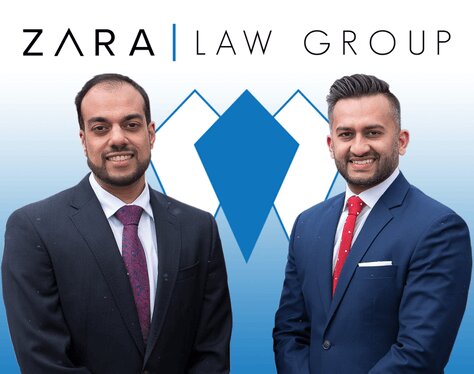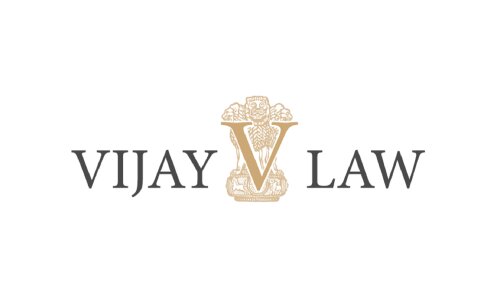Best Collaborative Law Lawyers in Illinois
Share your needs with us, get contacted by law firms.
Free. Takes 2 min.
Free Guide to Hiring a Family Lawyer
Or refine your search by selecting a city:
List of the best lawyers in Illinois, United States
About Collaborative Law in Illinois, United States
Collaborative Law in Illinois is a voluntary, structured process that allows parties facing family law conflicts, most commonly divorce and child custody, to resolve their disputes outside of the traditional courtroom setting. In this method, both parties work with trained collaborative attorneys, and sometimes other professionals like financial experts or child specialists, to craft mutually acceptable solutions. The process is designed to foster open communication, promote understanding, and reach agreements that benefit all involved without the adversarial nature of litigation.
Why You May Need a Lawyer
Collaborative Law can be an excellent choice for individuals who want to keep their legal matters private, minimize conflict, and maintain control over the outcomes. Common situations where you might need a lawyer skilled in Collaborative Law include:
- You and your spouse or partner are seeking a respectful divorce without going to court.
- You want to resolve child custody or support arrangements amicably.
- You have complex assets or debts and want to work out a fair division with expert assistance.
- You are interested in preserving a positive co-parenting or business relationship after separation.
- You want a less adversarial process that focuses on problem-solving rather than "winning."
A lawyer trained in Collaborative Law will guide you through the process, protect your interests, help manage negotiations, and ensure any agreement complies with Illinois law.
Local Laws Overview
Illinois formally recognizes Collaborative Law as an approved method for resolving family law matters. The Illinois Collaborative Process Act, which became effective in 2018, governs this legal process. Key aspects of the law include:
- Both parties must voluntarily sign a participation agreement that outlines the rules for the collaborative process, including the commitment not to go to court.
- Each party must be represented by their own specially trained collaborative attorney.
- If the process breaks down or either party decides to litigate, the collaborative lawyers must withdraw, and new attorneys must be retained for litigation.
- Communications during the process are confidential and typically cannot be used in court.
- The law encourages the inclusion of other professionals, like financial planners or mental health coaches, as part of the collaborative team.
These local rules aim to create a safe, honest, and constructive environment where families can untangle legal and financial connections with dignity and respect.
Frequently Asked Questions
What is Collaborative Law?
Collaborative Law is a voluntary, out-of-court process where both parties work with collaborative attorneys to settle family law disputes through open negotiation instead of litigation.
How is it different from mediation?
While both are alternatives to court, mediation involves a neutral third-party mediator who helps parties reach agreement, while in Collaborative Law, each party has their own attorney and the focus is on reaching agreements through structured, face-to-face negotiation.
What kinds of cases are best suited for Collaborative Law?
Collaborative Law is most often used for divorce, child custody, spousal maintenance, property division, and other family law issues, especially when the parties want to maintain a respectful relationship and avoid a courtroom battle.
What happens if we cannot reach an agreement?
If an agreement cannot be reached, the collaborative process ends and both parties must hire new attorneys if they wish to pursue litigation.
Is the process confidential?
Yes, conversations and documents shared during the collaborative process are confidential and cannot typically be used in court should the process break down.
How long does the Collaborative Law process take?
The time required varies depending on the complexity of the issues and the willingness of the parties to cooperate, but the process is often faster than going through traditional court litigation.
Do I have to go to court?
Usually, only the final agreement will be presented to a judge for approval, making court appearances minimal or unnecessary compared to traditional litigation.
Are agreements reached through Collaborative Law legally binding?
Once the parties reach a settlement, their agreement is put in writing and, once approved by the court, is legally binding.
Who pays for the Collaborative Law process?
Each party is responsible for their own attorney's fees, and costs for additional professionals like financial experts are typically shared or negotiated as part of the process.
Can Collaborative Law work if there is a history of conflict?
The process is designed for cooperation and good faith negotiation. While it can work for parties with conflict, both must be willing to commit to the principles of openness and respect. If there is a history of domestic violence or severe power imbalances, Collaborative Law may not be appropriate.
Additional Resources
If you are interested in learning more about Collaborative Law or finding practitioners in Illinois, consider these resources:
- Illinois State Bar Association - Family Law Section for referrals and educational materials about collaborative practice
- Illinois Supreme Court or your local Circuit Court for official rules and forms
- The Collaborative Law Institute of Illinois, which maintains a directory of trained professionals and offers educational workshops
- Illinois Legal Aid Online, which provides information on family law processes and your legal rights
- Local county bar associations, which often host legal clinics and can recommend collaborative attorneys in your region
Next Steps
If you are considering or ready to pursue Collaborative Law to resolve your family law matter in Illinois, here are some recommended steps:
- Research and contact collaborative attorneys in your area to discuss your specific situation.
- Schedule consultations to understand how Collaborative Law can work in your circumstances.
- Ask about your attorney’s training and experience in the collaborative process.
- Work with your attorney to initiate the process and prepare for your first collaborative meeting.
- Continue to review your options and communicate openly with your lawyer and other involved professionals to ensure your interests are represented throughout the process.
Taking these proactive steps can help you resolve your legal matter efficiently, respectfully, and with less stress than traditional court litigation.
Lawzana helps you find the best lawyers and law firms in Illinois through a curated and pre-screened list of qualified legal professionals. Our platform offers rankings and detailed profiles of attorneys and law firms, allowing you to compare based on practice areas, including Collaborative Law, experience, and client feedback.
Each profile includes a description of the firm's areas of practice, client reviews, team members and partners, year of establishment, spoken languages, office locations, contact information, social media presence, and any published articles or resources. Most firms on our platform speak English and are experienced in both local and international legal matters.
Get a quote from top-rated law firms in Illinois, United States — quickly, securely, and without unnecessary hassle.
Disclaimer:
The information provided on this page is for general informational purposes only and does not constitute legal advice. While we strive to ensure the accuracy and relevance of the content, legal information may change over time, and interpretations of the law can vary. You should always consult with a qualified legal professional for advice specific to your situation.
We disclaim all liability for actions taken or not taken based on the content of this page. If you believe any information is incorrect or outdated, please contact us, and we will review and update it where appropriate.
Browse collaborative law law firms by city in Illinois
Refine your search by selecting a city.
















